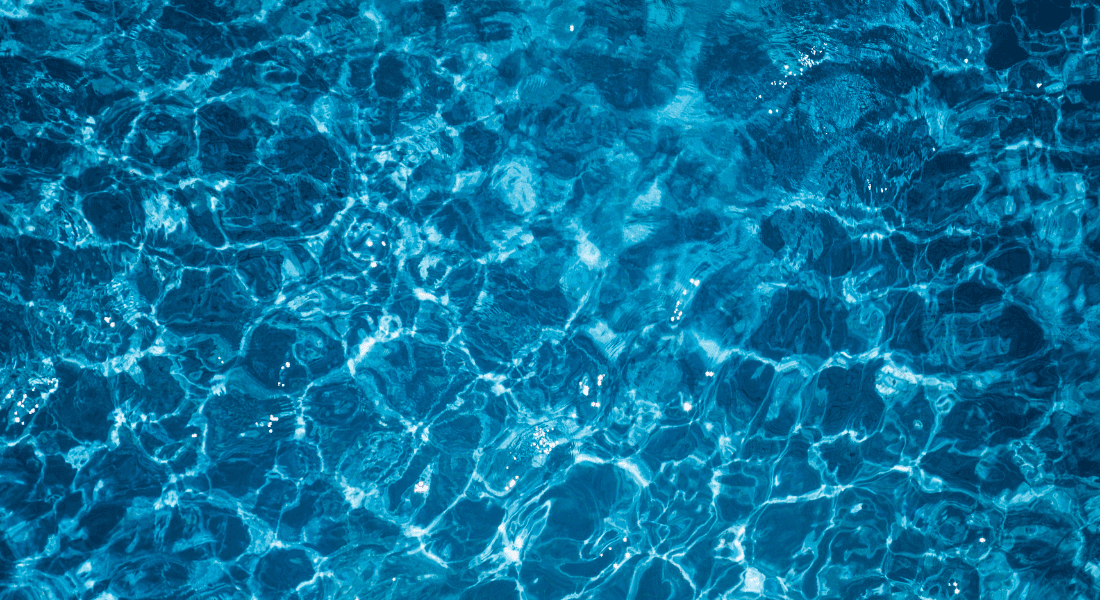Thinking of building a pool or switching your current setup? Dive into the key differences between saltwater pools vs chlorine pools!
Whether you’re a first-time pool owner or looking to upgrade your current pool system, understanding the pros and cons of each pool type is essential. In this guide, we’ll break down everything you need to know about saltwater and chlorine pools, including pool maintenance, costs, water quality, and more. If you’re deciding between a saltwater or chlorine system, this article will help you make the right splash!
1. Key Differences Between Saltwater and Chlorine Pools
The most basic distinction between a saltwater pool and a chlorine pool is how each keeps the pool water sanitized. A chlorine pool uses added chlorine tablets, liquid chlorine, or granules to keep the water clean. In contrast, a saltwater pool uses a salt chlorine generator to convert salt into chlorine through a process called electrolysis.
While both systems ultimately rely on chlorine to sanitize the pool water, how they introduce and regulate it differs significantly. This difference impacts everything from pool maintenance to water chemistry and even your skin’s comfort when swimming.
2. How Do Saltwater Pools Work? Understanding Salt Chlorine Generators
In a saltwater swimming pool, the primary cleaning component is the chlorine generator, often called a salt cell or saltwater chlorinator. You add pool-grade salt to the water, and the salt generator converts the salt into hypochlorous acid, the active sanitizing agent.
The key benefit here is that you rarely need to add chlorine manually. As long as the salt levels are maintained, the chlorine generator ensures the pool water stays clean. This system produces less chlorine at a steadier pace, which many people find to be gentler on their skin and eyes.
Because the saltwater system creates chlorine continuously, it can be more convenient and reduce the need for frequent chemical adjustments. However, it also means relying on more complex pool equipment, which may require maintenance or replacement over time.
3. How Do Chlorine Pools Function? The Role of Chlorine Tablets and Liquid Chlorine
A traditional chlorine pool relies on directly adding chlorine and other chemicals to disinfect the water. This can be done via chlorine tablets, liquid chlorine, or granular chlorine. These are typically placed in floaters, feeders, or added directly to the pool water.
Maintaining a chlorine pool involves regularly testing and adjusting chlorine levels to ensure the water remains safe. Unlike saltwater systems, where the generator maintains levels automatically, chlorine pools require more manual oversight.
One upside of a chlorinated pool is the simplicity of its pool setup. There are fewer components that can fail, making it potentially more reliable if maintained correctly. However, some people dislike the chlorine smell, and certain users may find the water harsh on their skin or eyes.
4. What Are the Pros and Cons of Saltwater Pools?
Let’s discuss the pros and cons of saltwater setups:
Pros:
- Softer water: Salt water pools tend to feel smoother and less irritating on the skin and eyes.
- Less manual chlorine use: Thanks to the chlorine generator, you don’t need to regularly add chlorine.
- Lower long-term chemical costs: Though startup costs are higher, you may save money over time on pool chemicals.
Cons:
- Higher upfront costs: Installing a salt chlorine generator can be pricey.
- Complex equipment: You’ll need to maintain the saltwater chlorinator and may face more expensive repairs.
- Corrosion risk: Due to salt, certain pool equipment may degrade faster, particularly in in-ground pool setups.

5. What Are the Pros and Cons of Chlorine Pools?
Here are the pros and cons of a chlorine pool:
Pros:
- Lower initial cost: Chlorine pools require fewer specialized components.
- Simple operation: Easy to understand and manage, particularly for new owners.
- Reliable disinfection: High chlorine levels are effective at keeping water clean quickly.
Cons:
- Ongoing chemical needs: You’ll regularly need to add more chlorine and other chemicals.
- Smell and irritation: Some swimmers dislike the chlorine smell or find it causes dry skin.
- More frequent testing: To monitor chlorine levels and balance water chemistry, frequent testing is required.
6. Which Pool Type Requires Less Maintenance?
Many pool owners want a pool that requires less maintenance. In general, saltwater pools require less day-to-day attention once the system is balanced.
The chlorine generator maintains consistent sanitizing levels, meaning you’ll spend less time handling chemicals or worrying if your pool water is safe. However, maintaining a saltwater pool means monitoring the salt levels and ensuring the salt cell is clean.
On the other hand, maintaining a chlorine pool involves more frequent chemical testing and adjustments. It’s more manual but doesn’t involve electronic components that may fail. So, in terms of pool maintenance, saltwater has an edge, but it depends on your comfort level with tech and chemistry.
7. Is Salt Water Safer or Gentler on Skin and Eyes?
This is a common question for anyone with sensitive skin or kids using the swimming pool. Saltwater pools offer a smoother, more comfortable swim due to the lower chlorine content and naturally softer pool water.
The salt content in a salt pool is similar to human tears, making it less irritating to the eyes. The water also doesn’t dry out your skin like high chlorine levels might.
That said, both systems use chlorine; the difference is how much and how consistently. If you want a water pool experience that feels more spa-like, saltwater and chlorine pools may be worth considering over strictly chlorine pools.
8. Cost Breakdown: Installing and Maintaining a Saltwater vs Chlorine Pool
The cost difference between saltwater pools vs chlorine pools is significant upfront. A salt chlorine generator can cost anywhere from $1,000 to $2,500 to install. You’ll also need to add pool-grade salt, which isn’t expensive but must be maintained.
Over time, however, you may save money with a saltwater system because you won’t need to buy chlorine tablets or liquid chlorine as frequently. Chlorine pools require a steady supply of chemicals, which adds up.
Also, factor in long-term wear and tear. Saltwater pools may increase corrosion on ladders, lights, and some pool equipment, which could increase costs.
9. What’s Better for In-Ground Pools: Saltwater or Chlorine?
When it comes to an in-ground pool, both systems can work well. However, if you’re installing a new pool, choosing the right system from the start can save you time and money.
Saltwater swimming pools are often favored for their smooth water and low chemical exposure. But the cost of the salt system and the risk of equipment corrosion must be considered.
Chlorine pools, on the other hand, are easier and cheaper to install. They’re also more universally understood by pool service professionals, which might help if you’re not maintaining it yourself.
Ultimately, the best type of pool for your home depends on your priorities—cost, comfort, and maintenance time.
Expert Swimming Pool Contractors Ready to Help You
Key Takeaways: Saltwater Pool vs Chlorine Pool
- Saltwater pools use a chlorine generator to convert salt into chlorine, offering gentler water.
- Saltwater pools use salt to generate chlorine via a salt cell, reducing the need to manually add chlorine.
- Chlorine pools require regular addition of chemicals like chlorine tablets, liquid chlorine, and stabilizers to keep the pool water safe.
- Saltwater pools offer softer, more comfortable water for swimmers, with less skin and eye irritation compared to chlorinated pools.
- The upfront cost of a saltwater system is higher, including the price of the chlorine generator and installation.
- Chlorine pools are cheaper to install and have simpler pool equipment, making them a good option for beginners.
- Saltwater pools require less daily maintenance, though you’ll need to monitor salt levels and clean the salt cell regularly.
FAQs
Q. Which is better, saltwater pool or chlorine?
A. For the majority of homeowners, saltwater pools are the preferred choice. They offer a more comfortable swimming experience, require less frequent chemical handling, and are easier to maintain over time. While chlorine pools are more affordable upfront and simpler to install, the ongoing need to add chlorine and manage chlorine levels makes them more hands-on. If long-term comfort, convenience, and water quality matter most, saltwater pools are generally seen as the better option by most homeowners.
Q. Are saltwater pools better for your skin than chlorine?
A. Yes, many people find that saltwater pools are gentler on the skin, eyes, and hair compared to chlorinated pools. The salt content in a salt pool creates a softer pool water texture and helps avoid the dryness and irritation that can come from high chlorine levels in a traditional chlorine pool. Because salt chlorine generators produce less chlorine in a more stable way, swimmers often report a more pleasant experience in saltwater swimming pools.
Q. Why is saltwater better than chlorinated?
A. Saltwater pools offer several advantages that make them appealing. First, they require less manual chemical handling, no need to regularly add chlorine, as the chlorine generator handles it. Second, the water feels smoother and more natural, which can improve comfort during swimming. Third, they often have fewer noticeable chlorine smells and reduce irritation to eyes and skin. While saltwater pools require higher upfront costs and more complex equipment, they typically offer lower long-term maintenance and a more enjoyable swim, making them better for many homeowners looking for convenience and comfort.
Q. Do you float more in a saltwater pool?
A. Yes, you float slightly more in a saltwater pool compared to a chlorine pool, but the difference is subtle. Salt water increases buoyancy due to its density, which is why you float more easily in the ocean. However, the amount of salt in a saltwater swimming pool is far lower than seawater—typically about 3,000 parts per million—so the increased buoyancy is minimal but still slightly noticeable. It’s a nice bonus, especially for those who enjoy a more effortless swim or want a more relaxing experience in the water.

